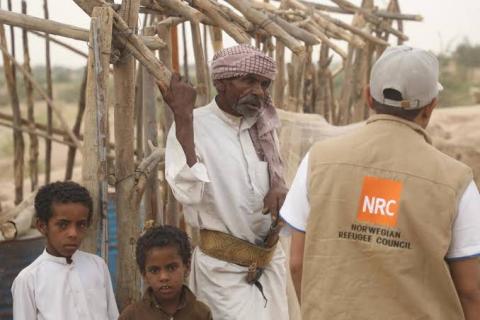Why has Yemen Become so Dangerous for Journalists?


In the 1940s, a small group of Sana’a’s elites migrated to Aden. At the time, Aden was under British colonial rule, while northern Yemen was ruled by a tyrannical monarchy. Among the most prominent goals of these elites was to take advantage of the freedom of the press in Aden, and to demand reforms throughout their motherland.
The bleak picture of freedom of expression in northern Yemen in the past century has returned to include the entire country. After a good level of freedom in the 1990s and during the first decade of this century, journalism returned to be one of the most dangerous professions in Yemen.
According to Reporters Without Borders, Yemen is ranked 169th (out of 180 countries) on the World Press Freedom Index for 2021. Although the Houthi-controlled areas in the north are among the most challenging environments for journalists, the areas under the control of the legitimate government are no less dangerous, and some consider them even more dangerous.
Four journalists were killed in 2021, while others are still being detained, or have left the country out of fear for their lives. Although the press played a notable role during what was known as the “youth revolution” in 2011, the press now often serves political interests rather than provide unbiased coverage of the country.
In fact, the large number of political players and parties to the conflict in Yemen plays an important role in complicating the work of journalists working within the country. Media polarization makes it extremely difficult to provide a free and fair press. This dire situation makes it difficult to find the perpetrators of the killings of journalists and makes impunity the norm.
In June of 2020, unknown gunmen murdered Nabil Hasan al-Quaety, an Agence France-Presse cameraman, near his home in southern Yemen. Nabil began his career by photographing popular protests in Aden beginning in 2007, which demanded the independence of the southern state, protests that were met with a campaign of repression from authorities. Quaety continued his work as a cameraman covering the following events, the most important of which was the invasion of Aden by Houthi rebels after their overthrow of the Yemeni capital, Sana’a. He was known for his exceptional courage in covering these events.
And in November, Rasha Abdullah al-Harazi, a correspondent for Al-Sharq channel, was killed in Aden, while she was in a car with her husband, Mahmoud al-Atmi, the correspondent for the Emirati Al-Ain channel. The family car exploded in the street, killing al-Harazi, and seriously injuring al-Atmi.
In 2022, the armed conflict in Yemen will enter its eighth year. There is no prospect of an end to the conflict that has made the country one of the worst humanitarian disasters. The hopes of Yemenis today are to stop the war and economic decline and get much-needed basic services.

Yemeni officials on Monday condemned arrests and prosecutions by the Iran-backed Houthi militia directed against media, journalists and celebrities…

Yemen's warring parties are gearing up for new waves of conflict in 2023 amid a lack of decisive steps towards sustainable peace, adding to the suf…

The UAE will help to recruit doctors and deliver crucial supplies for hospitals in Yemen under a major healthcare drive. The Khalifa bin…